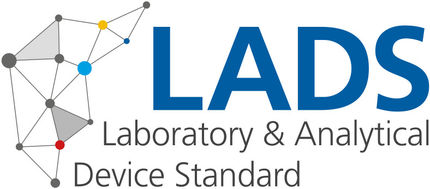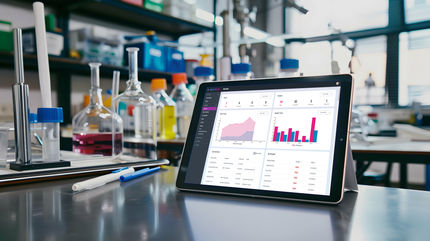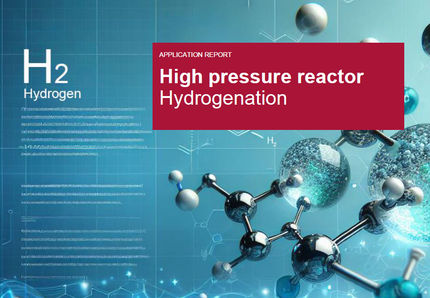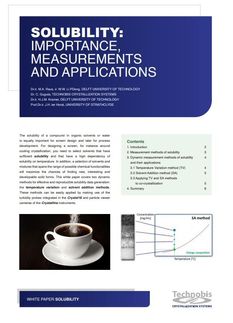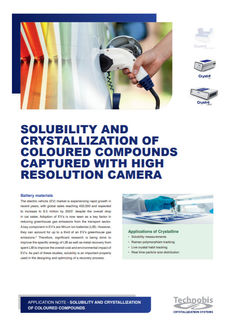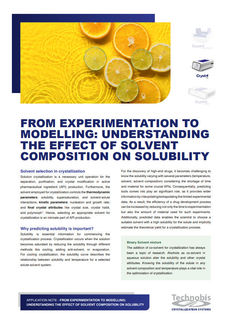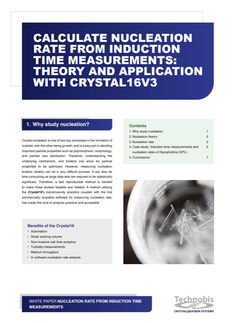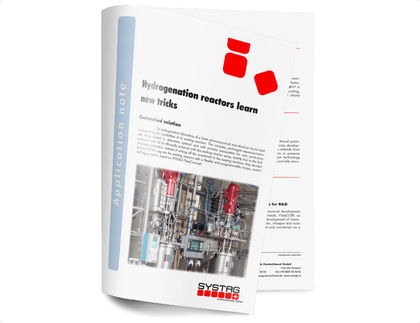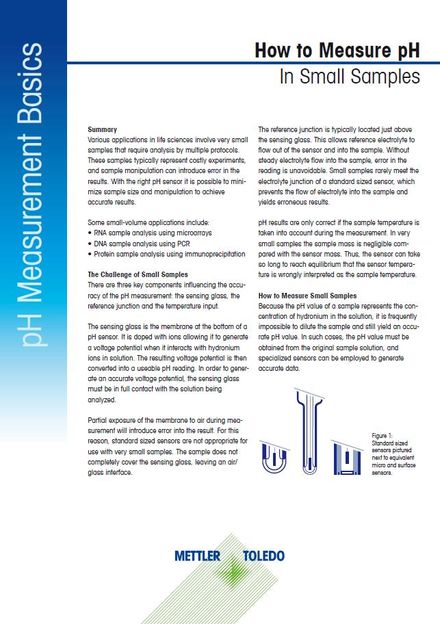Develop Syntheses More Efficiently: How to Save Time and Money by Laboratory Automation
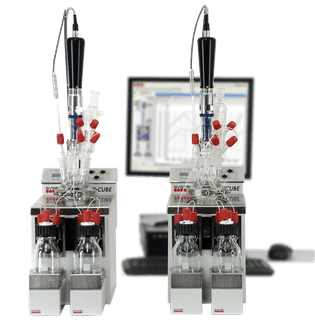
Parallel experiments to determine the metastable zone for a successful scale-up
Robust techniques and reproducibility are crucial to develop methods for a successful scale-up, particularly in API manufacturing and custom manufacturing. This white paper reveals how to maximize the efficiency and quality of developing your synthesis through parallel method development using fully automated laboratory reactors.
The advantages of laboratory automation to determine the metastable zone
A scale-up process performed under resource limitations can lead to unexpected problems, including costly downtime or laborious scale-down measures in production. In crystallization reactions, for example, there is a risk of spontaneous crystallization and consequently a loss of yield. This is where knowledge about the metastable zone (MSZ) helps. This white paper shows you how to design syntheses more efficiently than ever by determining the MSZ of a product-solvent mixture while improving process quality and saving time and money.
This white paper shows you how to
• let laboratory reactors perform time-consuming routine tasks, such as dosing or tempering, for you,
• determine solubility and the crystallization point by means of automated on-line analytics,
• identify complex relationships between temperature, concentration and incipient turbidity early on,
• document your experiments fully automatically, consistently and completely.
Download the free white paper now.
Download white paper now
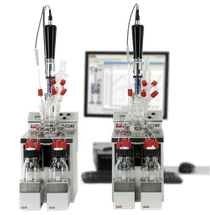
Develop Syntheses More Efficiently: How to Save Time and Money by Laboratory Automation
Parallel experiments to determine the metastable zone for a successful scale-up
White Paper classification
White papers on related topics
Products on related topics
Manufacturers of similar products
Webinars on related topics
See the theme worlds for related content
Topic world Synthesis
Chemical synthesis is at the heart of modern chemistry and enables the targeted production of molecules with specific properties. By combining starting materials in defined reaction conditions, chemists can create a wide range of compounds, from simple molecules to complex active ingredients.

Topic world Synthesis
Chemical synthesis is at the heart of modern chemistry and enables the targeted production of molecules with specific properties. By combining starting materials in defined reaction conditions, chemists can create a wide range of compounds, from simple molecules to complex active ingredients.
